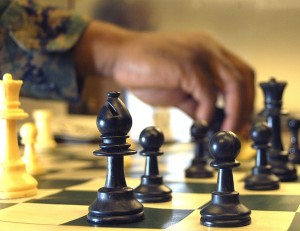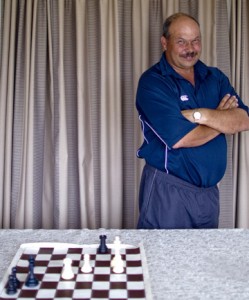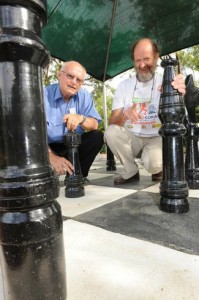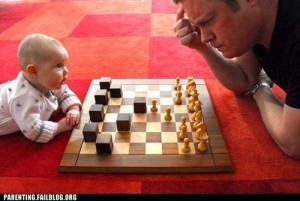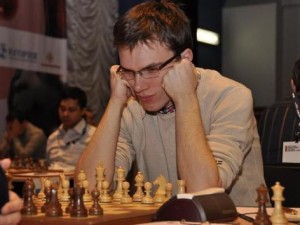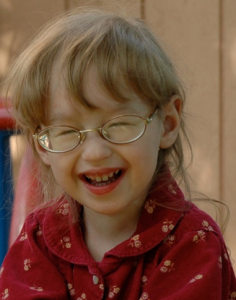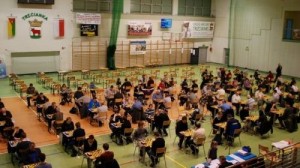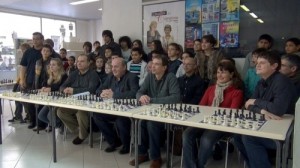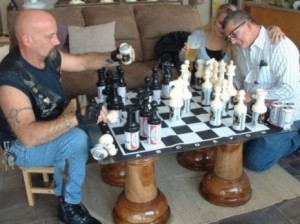29 February 2012
Chess blog for latest chess news and chess trivia (c) Alexandra Kosteniuk, 2012
Hi everyone,
It’s time for some beautiful chess again – the European Women’s Chess Championship 2012 begins on Thursday. You can also cheer your favourite grandmaster – Chess Queen Alexandra Kosteniuk at the event!
The Government of Turkey and the Turkish Chess Federation (TCF) and Gaziantep Metropolitan Municipality are holding the European Individual, Rapid and Blitz Women’s Chess Championship 2012 which will take place in Gaziantep, Türkiye, from 1st March (Arrival) to 19th March(Departure) 2012.
Opening and closing ceremony and matches will take place in The Anatolian Hotel Gaziantep.
The 13th European individual chess championship for women is open to all players representing the Chess Federations which comprise the European Chess Union (FIDE zones 1.1 to 1.10) regardless of their title or rating. There is also no limit of participants per federation.
You can access the official website here.
From Alexandra Kosteniuk’s
www.chessblog.com
Also see her personal blog at
www.chessqueen.com
Hi everyone,
It’s time for some beautiful chess again – the European Women’s Chess Championship 2012 begins on Thursday. You can also cheer your favourite grandmaster – Chess Queen Alexandra Kosteniuk at the event!
The Government of Turkey and the Turkish Chess Federation (TCF) and Gaziantep Metropolitan Municipality are holding the European Individual, Rapid and Blitz Women’s Chess Championship 2012 which will take place in Gaziantep, Türkiye, from 1st March (Arrival) to 19th March(Departure) 2012.
Opening and closing ceremony and matches will take place in The Anatolian Hotel Gaziantep.
The 13th European individual chess championship for women is open to all players representing the Chess Federations which comprise the European Chess Union (FIDE zones 1.1 to 1.10) regardless of their title or rating. There is also no limit of participants per federation.
You can access the official website here.
From Alexandra Kosteniuk’s
www.chessblog.com
Also see her personal blog at
www.chessqueen.com
29 February 2012
Chess blog for latest chess news and chess trivia (c) Alexandra Kosteniuk, 2012
Hi everybody,
The 6th International Chess Tournament, dedicated to the memory of Georgy Agzamov, the first grandmaster of Uzbekistan, will be held in Tashkent from March 5th (arrival) till March 15th (departure).
Registration will take place on March 5th, 2012 from 10.00 at the playing venue in the building of the Republican Chess Club (Pakhtakor stadium). The official hotel of the tournament is “Shodlik Palace”.
The general management organization of the competition is carried out by the Chess Federation of Uzbekistan, in cooperation with the Ministry of Culture and Sports of Uzbekistan. The Tournament is a 9-round Swiss. Last year champion was GM Tigran L Petrosian from Armenia. Players list bellow.
The general prize fund is 20 000 US dollars
1st place – 5 000 US dollars
2nd place – 3 500 US dollars
3rd place – 2 500 US dollars
4th place – 2 000 US dollars
5th place – 1 500 US dollars
6th place – 1 000 US dollars
7th place – 750 US dollars
8th place – 500 US dollars
9th place – 300 US dollars
10th place – 250 US dollars
11th place – 250 US dollars
12th place – 250 US dollars
Total: 17 800 US dollars
Special prizes:Women, if not less than 10 participants:
1st place – 500 US dollars
2nd place – 300 US dollars
3rd place – 200 US dollars
Total: 1000 US dollars
Juniors under 20:1st place – 300 US dollars
2nd place – 200 US dollars
3rd place – 100 US dollars
Total: 600 US dollars
Veterans:1st place – 300 US dollars
2nd place – 200 US dollars
3rd place – 100 US dollars
Total: 600 US dollars
Grand total: 20 000 US dollars
Website: www.uzchess.uz
Players’ list:
1. Grachev Boris (Russia) – GM 2693
2. Azarov Sergei (Belarus) – GM 2667
3. Iordachescu Viorel (Moldova) – GM 2651
4. Turov Maxim (Russia) – GM 2645
5. Filippov Anton (Uzbekistan) – GM 2637
6. Guseinov Gadir (Azerbaijan) – GM 2634
7. Mchedlishvili Mikheil (Georgia) – GM 2631
8. Solodovnichenko Yuriy (Ukraine) – GM 2613
9. Kotsur Pavel (Kazakhstan) – GM 2589
10. Golod Vitali (Israel) – GM 2570
29 February 2012
Chess blog for latest chess news and chess trivia (c) Alexandra Kosteniuk, 2012
Hi everyone,
The 4th Odisha International GM Open Chess Tournament is scheduled to take place from May 29 to June 5 in Bhubaneswar, India. Last year’s winner was GM Aleksej Aleksandrov.
System of Play: The tournament will be conducted as per FIDE Laws of Chess and FIDE Swiss System with 10 rounds. Subjected to FIDE approval, Accelerated pairing will be employed for first two rounds of the event to increase norm chances of players. More info here.
From Alexandra Kosteniuk’s
www.chessblog.com
Also see her personal blog at
www.chessqueen.com
29 February 2012
Chess blog for latest chess news and chess trivia (c) Alexandra Kosteniuk, 2012
Hi everyone,
The latest update from Saint Louis is that the World Chess Hall of Fame will open its doors on two new exhibits starting March 9, 2012. Bobby Fischer: Icon Among Icons, Photographs by Harry Benson CBE and Marcel Dzama: The End Game explore the game of chess and its role in society from dramatically different angles.
The shows will run through August 12, 2012.
“We selected these artists because of their stunning talent and their unique perspectives,” said Susan Barrett, director of WCHoF. “We hope the exhibitions will enlighten visitors while also challenging their preconceived notions of the significance of chess.”
Harry Benson: Icon Among Icons
Scottish-born photojournalist Harry Benson’s work ranges from photographs of world leaders to pop stars, all portrayed with an immediacy and naturalness that speaks of a confidence and rapport between sitter and photographer.
Benson was the only person to have private access to Bobby Fischer during the epic 1972 World Chess Championship match in Reykjavík, Iceland. Fischer became a pop culture sensation due to his incredible playing and the Cold War matchup between him and Russian player Boris Spassky, the defending world chess champion. News outlets referred to the match as the “Match of the Century” and used headlines such as “Fischer vs. Spassky: A Major Struggle in the Cold War.”
As the images in this exhibition show, Benson’s photography captures a side of the elusive and controversial chess genius that is rarely seen, and offers a window into the private world of the man Benson calls “the most eccentric and most fascinating person I have ever photographed.”
Rare images of Fischer will be exhibited along with Benson’s photos of other pop culture icons such as Jerry Garcia, Elizabeth Taylor, Barbara Streisand, Bill Clinton, Muhammad Ali, and Jaqueline Kennedy. The juxtaposition allows viewers to see Fischer’s cultural significance as virtually equal to that of presidents, movie stars, artists, designers, and leaders, whose impact has made them objects of great attention and devotion in society. Sample images of Benson’s work can be downloaded here.
Marcel Dzama: The End Game features the artist’s film, A Game of Chess, alongside related drawings, paintings, sculptures, and dioramas.
The work draws from a diverse range of references and artistic influences, including Dada and Marcel Duchamp.
The 14-minute film incorporates ballet, stark landscapes, and moments of violence to tell a story based on the classic game of chess. Performers are dressed in geometrically designed costumes of papier-mâché, plaster, and fiberglass; they dance across a checkered board to challenge their opponents in fatal interchanges.
Some new paintings were created especially for this exhibit, which marks the first solo showing of Dzama’s work in the Midwest. A trailer for the film can be viewed at http://youtu.be/D6mySi-vCHs.
“WCHoF is pleased to be recognized as one of the most exciting new additions to Saint Louis’ already-vibrant cultural scene. We look forward to welcoming visitors to these new exhibitons throughout the spring and summer,” Barrett said.
About the World Chess Hall of Fame
The World Chess Hall of Fame is a nonprofit organization committed to building awareness for the cultural and artistic significance of chess. It opened on September 9, 2011 in the Central West End after moving from previous locations in New York and Miami.
The WCHoF is housed in an historic 15,900 square-foot residence-turned-business and features the U.S. and World Chess Halls of Fame, displays of artifacts from the permanent collection, and temporary exhibitions highlighting the great players, historic games, and rich cultural history of chess.
The WCHOF partners with the Chess Club and Scholastic Center to provide innovative programming and outreach to local, national, and international audiences. For more information, visit www.worldchesshof.org.
The 14-minute film incorporates ballet, stark landscapes, and moments of violence to tell a story based on the classic game of chess. Performers are dressed in geometrically designed costumes of papier-mâché, plaster, and fiberglass; they dance across a checkered board to challenge their opponents in fatal interchanges.
Some new paintings were created especially for this exhibit, which marks the first solo showing of Dzama’s work in the Midwest. A trailer for the film can be viewed at http://youtu.be/D6mySi-vCHs.
“WCHoF is pleased to be recognized as one of the most exciting new additions to Saint Louis’ already-vibrant cultural scene. We look forward to welcoming visitors to these new exhibitons throughout the spring and summer,” Barrett said.
About the World Chess Hall of Fame
The World Chess Hall of Fame is a nonprofit organization committed to building awareness for the cultural and artistic significance of chess. It opened on September 9, 2011 in the Central West End after moving from previous locations in New York and Miami.
The WCHoF is housed in an historic 15,900 square-foot residence-turned-business and features the U.S. and World Chess Halls of Fame, displays of artifacts from the permanent collection, and temporary exhibitions highlighting the great players, historic games, and rich cultural history of chess.
The WCHOF partners with the Chess Club and Scholastic Center to provide innovative programming and outreach to local, national, and international audiences. For more information, visit www.worldchesshof.org.
www.chessblog.com
Also see her personal blog at
www.chessqueen.com
29 February 2012
Chess blog for latest chess news and chess trivia (c) Alexandra Kosteniuk, 2012
Hi everyone,
There are all these interesting chess interviews that make you feel so happy about chess. Here’s one such interview. Our question is – ever played a chess game that took two years to finish? Howzzat? Read on to find out!
.
Noble pursuit
A grand master always stays ahead of the game in his strategy, writes LEE MATTHEWS.
A chess grand master can literally see the future. It’s not crystal-ball gazing; no fortune-telling hokum. What a chess grand master sees, spread out in the mind’s eye, is simultaneous visualisations of what’s going to happen on the chess board if this piece moves here, that piece moves there, then another piece shifts somewhere else. It’s a different logic chain for every move, every piece on the board.
New Zealand’s correspondence chess grand master and across-the-board fide master Mark Noble, who recently moved to Feilding, says the skill for any chess player to learn is to foresee what’s going to happen, regardless of what move is made. “It’s complicated. At the beginning of every game, the opening move, white has 20 possible moves. Black then has 20 possible replies. So that’s 20 times 20 possible combinations just in those first two moves.
“Second move and reply, it’s up to 30 possibilities for each colour. Keep that up, and you’re suddenly looking at a lot of zeroes, very quickly.”
Many possible moves are quickly eliminated, but Noble works 10 or 12 moves in advance in his mind, knowing what will happen if any piece anywhere moves in any order. It’s about recognising patterns, having a plan, and being able to rapidly change that plan if something goes against you.
He tries to set up what he calls his “pet lines” – game strategies where his moves drive the other player into a mistake, or into the trap he’s setting.
“If you can make the game move along one of those lines, you know the strategy, you know all the tactics for it. You’re playing to a logical conclusion. And if your opponent doesn’t know what you’re doing, they have to make the perfect move every time to evade the trap.”
But chess is too complicated, with too many variables, to ensure these pet lines happen every move, every time. There’s always potential for surprise, for being out-visualised and out-thought.
Noble’s the first correspondence chess grand master in New Zealand history. He won the rank in 2010, after playing chess for 36 years. Murray Chandler was the first Kiwi over-the-board or face-to-face grand master, who won the rank in 1982, playing for England. Both got their start at the Pencarrow Chess Club in Wainuiomata, coached by Brian Foster, who ran Sunday afternoon junior classes.
“I’m 49, Murray’s several years older than me. He was already New Zealand champion when I started playing … he went to England and played over-the-board for England for 30 years, got his grand mastership there. New Zealand’s really too small to have enough competition at the top level.”
Noble started chess at intermediate school, and the game was useful therapy for what happened next. Aged 13, he was hit by a car and his left leg was severely damaged. He was in hospital for months, underwent a series of operations, and he actually won the Pencarrow club’s C-grade competition from his hospital bed. It gave him a taste for correspondence chess – a good sport for a lad who loved lots of sports, but who walked with a limp. Chess also further honed his photographic memory; he can recall pretty much every game of chess he’s ever played, move by move.
“It helps if I write the moves down in a chess book; the writing helps me remember it better. But I’m hopeless with names, I could meet you down the street next week and I’ll look at you blankly, sorry.”
He says computer technology and the internet have revolutionised correspondence chess.
“In the old days, it took years, I think 20 years was the limit for a game. If I was playing somebody in Russia, I’d post my move to him, and it would take six to eight weeks to get there. He’d think about it, post his reply back … four months to make a move, three moves a year. The longest posted game I ever had was probably nine years … very drawnout, and expensive in stamps.”
Technology has speeded up the exchange of moves, taking out letter travel time. An internet correspondence game now allows 50 days to make 10 moves, which sounds a lot of time, but isn’t.
“It takes about 10 hours of thinking, real thinking without distraction, to fully visualise a move. I can get a five-hour bracket between 8pm and 1am, so that’s two nights to think through a move.”
Even so, it can take two years to finish a game. He’s currently playing 130 correspondence games at once. Fourteen of these games are in the current Chess World Cup.
“There’s World Cup, and World Championships. I’m playing in the 15th World Cup now, and I’ve qualified for the 20th World Championships, they’re playing the 19th ones now. Both correspondence.”
Correspondence chess suits him better than over-the-board. He’s a fide (or third-level) master in over-the-board, and he’s working to improve that. The problem is the time required for over-the-board competitions. Two weeks to qualify, another two weeks of games at a national competition, then more time overseas battling up the seeding order.
“If you have to work, have a life with children and obligations, it’s hard to find that sort of time.”
He works part-time for Idea Services (formerly IHC), and he’s slowly developing work coaching chess in schools. Feilding Intermediate, led by principal Stu Trembath, last year decided to introduce chess as a brain-training tool. Mr Trembath says his staff report that chess players’ thinking and problem solving is noticeably in advance of children who don’t play.
“To be a good chess player, you have to be patient, you have to visualise what’s going to happen, you need tactics and strategy, you need to prepare for what you’re doing. Those are good skills,” Noble says.
He’d like to see all 5-year-olds introduced to chess as soon as they start school.
“Teach them how the pieces move, and when they get confident, start playing seriously with them. Take their pieces as they make mistakes. You’ll see their thinking develop with every game.”
That developed thinking gets applied to everything the chess-trained child does.
“I just think if you get kids going with this, they’re going to succeed in other things as well. I’m not looking to turn out 300 champion chess players from a school, I just want to see the thinking happen in all their areas.”
He teaches children to control the middle of the board, and the crucial moves in a game are probably moves 12 to 20.
“Think of the middle of the board as a hill, with a war being fought up and and around it. Get to the top of that hill, and you’ll win, that’s elementary battle tactics.”
His study is set up with a computer, with chess books and a board and pieces handy. There’s a shelf loaded with championship trophies, and a packet of pineapple lumps to satisfy the snack attack during late-night thinking sessions.
Noble also plays lawn bowls, has joined Palmerston North’s Northern Bowling Club, and recently, with Manawatu international Sharon Sims, won the centre title mixed pairs. He says there’s many similarities between bowls and chess, similar thinking and tactical play, trying to force the opponent to certain sequences of action.
“The thing about chess is that there’s always something to think about. The game’s as old as humans, it’s gone on forever, and it’s never been mastered. The best player in the world still gets beaten when somebody else out-thinks them … and you only learn from your losses.”
Computers as chess opponents are hard to beat, but in certain circumstances the human brain still out-think it.
“Computers don’t handle an unbalanced game very well; you get four pawns on one side of the board, for instance. The logic they use can’t compute it correctly, somehow. We can. And using computers, well, it defeats the point of using your own brain.”
From Alexandra Kosteniuk’s
www.chessblog.com
Also see her personal blog at
www.chessqueen.com
29 February 2012
Chess blog for latest chess news and chess trivia (c) Alexandra Kosteniuk, 2012
Hi everyone,
Hi everyone,
Indeed, it’s never too late to learn chess. That’s what this nice article about seniors at a chess club is all about.
Bundaberg Chess Club members are promoting the game as a potent weapon in the fight against dementia and diseases such as Alzheimer’s. According to studies, the ancient game can strengthen mental acuity and potentially prevent or delay the onset of dementia.
Bundaberg Chess Club secretary Allan Menham said the benefits of the game were not lost on the more senior members of the club.
“Some of our members are into their 70s and others are approaching retirement age,” he said.
“Chess is a very simple way in which older people can keep their minds healthy and active.
“The benefits have been scientifically proven many times over.”
Mr Menham said it was never too late to learn the game and he welcomed prospective members.
He said chess attracted people from all walks of life, which made for an interesting and competitive club.
“It doesn’t matter how old you are or how young you are – you’re all playing by the same rules,” he said.
“Chess is the great leveller.”
Mr Menham said the board game was also an affordable activity for older people who were trying to keep their minds active.
“All you really need is a chessboard. Once you have one of those, you’re pretty much set for life,” he said.
The Bundaberg Chess Club meets every Wednesday night at the U3A rooms on Woongarra St from 6.30pm.
To contact the club for information phone 41517469 or 0417073094.
From Alexandra Kosteniuk’s
www.chessblog.com
Also see her personal blog at
www.chessqueen.com
Bundaberg Chess Club members are promoting the game as a potent weapon in the fight against dementia and diseases such as Alzheimer’s. According to studies, the ancient game can strengthen mental acuity and potentially prevent or delay the onset of dementia.
Bundaberg Chess Club secretary Allan Menham said the benefits of the game were not lost on the more senior members of the club.
“Some of our members are into their 70s and others are approaching retirement age,” he said.
“Chess is a very simple way in which older people can keep their minds healthy and active.
“The benefits have been scientifically proven many times over.”
Mr Menham said it was never too late to learn the game and he welcomed prospective members.
He said chess attracted people from all walks of life, which made for an interesting and competitive club.
“It doesn’t matter how old you are or how young you are – you’re all playing by the same rules,” he said.
“Chess is the great leveller.”
Mr Menham said the board game was also an affordable activity for older people who were trying to keep their minds active.
“All you really need is a chessboard. Once you have one of those, you’re pretty much set for life,” he said.
The Bundaberg Chess Club meets every Wednesday night at the U3A rooms on Woongarra St from 6.30pm.
To contact the club for information phone 41517469 or 0417073094.
From Alexandra Kosteniuk’s
www.chessblog.com
Also see her personal blog at
www.chessqueen.com
28 February 2012
Chess blog for latest chess news and chess trivia (c) Alexandra Kosteniuk, 2012
Hi everyone,
Is this a first of sorts for an open chess tournament? There is going to be no entry fee at the 1st International Open Chess Tournament “Paleros 2012″ (June 13-20) to be organised in the 4-star Paleros Resort Beach Hotel, on the coast of the Ionian Sea, opposite the island of Lefkada and the celebrity island Skorpios of the famous Aristotelis Onassis.
The chess event will be an international 9-round swiss tournament with a prize fund of over 3,000 euros and excellent hotel prices, giving the opportunity to combine chess and summer holidays at a very affordable level.
The special chess packages start from only 187 euros(!) including accommodation for 7 nights in a double room, breakfast and no entry fee for the players!
There is also a further 50% discount for children under 12 (born on the year 2000 and later) if they are added as a 3rd person in the double room of their accompanying persons.
Paleros (map) is located 28 km south of the international airport of Preveza (IATA code is PVK). Travelers can also use the airports of Ioannina (IOA) which is 150 km north of Paleros or even Athens (ATH).
Full information about the tournament and travel details are provided on the official website of the event:http://www.paleroschess.com
28 February 2012
Chess blog for latest chess news and chess trivia (c) Alexandra Kosteniuk, 2012
Hi everyone,
The UT Dallas Grandmaster Invitational will be one of the top GM closed tournaments in the world for the month of March. It will be a Scheveningen clash between the Home team of University of Texas Dallas and a Visiting Grandmasters team.
For UT Dallas on the chess board will play GM Valentin Yotov (Bulgaria, 2560), GM Cristian Chirila (Romania, 2529), GM Julio Catalino C. Sadorra (Philippines, 2509), IM Milos Pavlovic (Serbia, 2491), IM Conrad Holt (USA, 2480).
The Visiting team is composed by GM Giorgi Kacheishvili (Georgia, 2612), GM Ray Robson (USA, 2591), GM Aleksandr Lenderman (USA, 2583), GM Magesh Panchanathan (India, 2573), GM Leon Manuel Hoyos (Mexico, 2569)
UT Dallas Grandmaster Invitational system
The Scheveningen system provides the optimum invitational event for a team. Each player on one team plays each player on the other team. The team with the highest number of games won is the winner. This system creates title norm opportunities. Their current International Masters (IM) could achieve Grandmaster (GM) norms. Three norms are required to receive the title of Grandmaster.
In recent years, the Scheveningen has been popular in hard-fought matches between Russian and Chinese teams. The system was first used in a tournament in Scheveningen, Holland in 1923. The original idea was that a team of 10 Dutch players could face 10 foreign masters, allowing players to experience strong competition. In keeping with this style, a team of five strong GMs has been invited to Dallas.
The Scheveningen system is rarely seen in the United States. In this tournament’s format, the five UT Dallas team members will face the visiting five GMs twice, for a total of 10 rounds. Every member of the home team will face 10 consecutive rounds of games against strong competition.
Schedule
Saturday, March 10 Opening Ceremony 4:30 p.m.
Round 1 5 p.m.
Sunday, March 11 Round 2 10 a.m.
Round 3 5 p.m.
Monday, March 12 Round 4 10 a.m.
Round 5 5 p.m.
Tuesday, March 13 Rest Day and Blitz Tournament
Wednesday, March 14 Round 6 10 a.m.
Round 7 5 p.m.
Thursday, March 15 Round 8 10 a.m.
Round 9 5 p.m.
Friday, March 16 Round 10 10 a.m.
Studying and preparing are essential for members of a chess team. Nevertheless, there is no substitute for the training provided by playing actual high level tournament games. The UT Dallas Chess Team did this last fall with a tournament prior to playing in—and winning—the Pan-American Intercollegiate Team Chess Championship. Now with the UT Dallas Grandmaster Invitational Underwritten by Turner Construction Company in the spring semester leading to this year’s
Final Four of Chess in Washington, D.C., the team will again be poised to compete with the very best college chess teams in the United States for the President’s Cup. Free to the public, live master commentary will be offered during every round of the tournament at the Hyatt Regency, Richardson. Commentators for round one will be FM John Jacobs and Rodney Thomas; for last round, GM Alejandro Ramirez. All other rounds will feature commentary from IM Rade Milovanovic.
From Alexandra Kosteniuk’s
www.chessblog.com
Also see her personal blog at
www.chessqueen.com
Hi everyone,
The UT Dallas Grandmaster Invitational will be one of the top GM closed tournaments in the world for the month of March. It will be a Scheveningen clash between the Home team of University of Texas Dallas and a Visiting Grandmasters team.
For UT Dallas on the chess board will play GM Valentin Yotov (Bulgaria, 2560), GM Cristian Chirila (Romania, 2529), GM Julio Catalino C. Sadorra (Philippines, 2509), IM Milos Pavlovic (Serbia, 2491), IM Conrad Holt (USA, 2480).
The Visiting team is composed by GM Giorgi Kacheishvili (Georgia, 2612), GM Ray Robson (USA, 2591), GM Aleksandr Lenderman (USA, 2583), GM Magesh Panchanathan (India, 2573), GM Leon Manuel Hoyos (Mexico, 2569)
UT Dallas Grandmaster Invitational system
The Scheveningen system provides the optimum invitational event for a team. Each player on one team plays each player on the other team. The team with the highest number of games won is the winner. This system creates title norm opportunities. Their current International Masters (IM) could achieve Grandmaster (GM) norms. Three norms are required to receive the title of Grandmaster.
In recent years, the Scheveningen has been popular in hard-fought matches between Russian and Chinese teams. The system was first used in a tournament in Scheveningen, Holland in 1923. The original idea was that a team of 10 Dutch players could face 10 foreign masters, allowing players to experience strong competition. In keeping with this style, a team of five strong GMs has been invited to Dallas.
The Scheveningen system is rarely seen in the United States. In this tournament’s format, the five UT Dallas team members will face the visiting five GMs twice, for a total of 10 rounds. Every member of the home team will face 10 consecutive rounds of games against strong competition.
Schedule
Saturday, March 10 Opening Ceremony 4:30 p.m.
Round 1 5 p.m.
Sunday, March 11 Round 2 10 a.m.
Round 3 5 p.m.
Monday, March 12 Round 4 10 a.m.
Round 5 5 p.m.
Tuesday, March 13 Rest Day and Blitz Tournament
Wednesday, March 14 Round 6 10 a.m.
Round 7 5 p.m.
Thursday, March 15 Round 8 10 a.m.
Round 9 5 p.m.
Friday, March 16 Round 10 10 a.m.
Studying and preparing are essential for members of a chess team. Nevertheless, there is no substitute for the training provided by playing actual high level tournament games. The UT Dallas Chess Team did this last fall with a tournament prior to playing in—and winning—the Pan-American Intercollegiate Team Chess Championship. Now with the UT Dallas Grandmaster Invitational Underwritten by Turner Construction Company in the spring semester leading to this year’s
Final Four of Chess in Washington, D.C., the team will again be poised to compete with the very best college chess teams in the United States for the President’s Cup. Free to the public, live master commentary will be offered during every round of the tournament at the Hyatt Regency, Richardson. Commentators for round one will be FM John Jacobs and Rodney Thomas; for last round, GM Alejandro Ramirez. All other rounds will feature commentary from IM Rade Milovanovic.
From Alexandra Kosteniuk’s
www.chessblog.com
Also see her personal blog at
www.chessqueen.com
28 February 2012
Chess blog for latest chess news and chess trivia (c) Alexandra Kosteniuk, 2012
Hi everyone,
If you were around for the German chess league, you would have got a nice surprise. The 12th World Chess Champion – none other than Anatoly Karpov – played a game, for the first time this season, for his club SV Hockenheim, on Sunday in the Schachbundesliga.
The former World Champion drew against IM Martin Krämer in 78 moves. OSC Baden Baden maintained the lead in the competition and will face their closest rival, Werder Bremen, in the next Bundesliga weekend.
www.chessblog.com
Also see her personal blog at
www.chessqueen.com
Hi everyone,
If you were around for the German chess league, you would have got a nice surprise. The 12th World Chess Champion – none other than Anatoly Karpov – played a game, for the first time this season, for his club SV Hockenheim, on Sunday in the Schachbundesliga.
The former World Champion drew against IM Martin Krämer in 78 moves. OSC Baden Baden maintained the lead in the competition and will face their closest rival, Werder Bremen, in the next Bundesliga weekend.
Anatoly Karpov in the Bundesliga | Photo Schachbundesliga
With his draw against Krämer, Karpov contributed to a 4-4 score in the match Hockenheim-SF Berlin. The 12th World Champion was better throughout the game, but the German IM made no mistakes.
Below is the game with Chess King. You can also read the full story in Chess Vibes.
From Alexandra Kosteniuk’s With his draw against Krämer, Karpov contributed to a 4-4 score in the match Hockenheim-SF Berlin. The 12th World Champion was better throughout the game, but the German IM made no mistakes.
Below is the game with Chess King. You can also read the full story in Chess Vibes.
Karpov, Anatoly – Kraemer, Martin
Result: 1/2-1/2
Site: Bundesliga
Date: 2012.02.26
[…] 1.¤f3 ¤f6 2.c4 e6 3.¤c3 d5 4.d4 ¥e7 5.¥f4 O-O 6.e3 ¤bd7 7.¥e2 dxc4 8.¥xc4 a6 9.a4 c5 10.O-O cxd4 11.£xd4 ¤b6 12.¥b3 £xd4 13.¤xd4 ¥d7 14.a5 ¤bd5 15.¤xd5 ¤xd5 16.¥e5 ¦ac8 17.¦fd1 ¦fd8 18.¥xd5 exd5 19.¤e2 f6 20.¥c3 ¥e6 21.h3 ¢f7 22.¦d2 g5 23.f3 ¥c5 24.¢f2 ¦e8 25.¥d4 ¥b4 26.¥c3 ¥c5 27.¤d4 ¥d7 28.¦e1 h6 29.¤c2 ¥f5 30.¤b4 ¥xb4 31.¥xb4 ¦c2 32.¦xc2 ¥xc2 33.¥c5 ¥b3 34.¦c1 ¦c8 35.¦c3 ¥c4 36.¥d4 ¦c6 37.b4 h5 38.g4 ¢g6 39.¦c1 f5 40.¦g1 hxg4 41.hxg4 fxg4 42.¦xg4 ¢f5 43.¥b6 ¦c8 44.¥d4 ¦c6 45.¦g1 ¦h6 46.¢g3 ¦h7 47.¦c1 ¢e6 48.¥a7 ¦f7 49.¦c2 ¥d3 50.¦d2 ¥f5 51.¥b6 ¦h7 52.¦g2 ¦h3+ 53.¢f2 g4 54.fxg4 ¥e4 55.¦g1 ¦h2+ 56.¢g3 ¦h1 57.¦xh1 ¥xh1 58.¢f2 ¥e4 59.¢e2 ¢f6 60.¥d8+ ¢e5 61.¥c7+ ¢f6 62.¥f4 ¢e6 63.¥h6 ¥g6 64.¥g7 ¢f7 65.¥h8 ¥e4 66.¥e5 ¢e6 67.¥f4 ¥g2 68.¢d3 ¥f3 69.g5 ¢f5 70.¢d4 ¥e4 71.¢c5 ¢g6 72.¢b6 ¢f5 73.¥g3 d4 74.exd4 ¢xg5 75.¢c5 ¢f6 76.¢d6 ¢f7 77.d5 ¥f3 78.¥h4 ¥g2
www.chessblog.com
Also see her personal blog at
www.chessqueen.com
28 February 2012
Chess blog for latest chess news and chess trivia (c) Alexandra Kosteniuk, 2012
Hi everyone,
More chess happening in the world and that pleases us no end. From Fide, we have the chess update that the First International Chess Tournament in Guam was held from 18-22 February as a FIDE-rated ten-player round robin at the Bayview Hotel in Tumon Guam 18-22 February 2012 under the auspices of Guam Echecs (Island Chess) and the Oceania Chess Confederation (OCC).
The co-winners of this inaugural event were Efren Manuel (GUM) and Leon Kempen (AUS) each scoring 7 points out of 9.
The Guam International Chess Tournament will become an annual FIDE-rated Open event in the Oceania Grand Prix from February 2013 onwards.
Hi everyone,
More chess happening in the world and that pleases us no end. From Fide, we have the chess update that the First International Chess Tournament in Guam was held from 18-22 February as a FIDE-rated ten-player round robin at the Bayview Hotel in Tumon Guam 18-22 February 2012 under the auspices of Guam Echecs (Island Chess) and the Oceania Chess Confederation (OCC).
The co-winners of this inaugural event were Efren Manuel (GUM) and Leon Kempen (AUS) each scoring 7 points out of 9.
The Guam International Chess Tournament will become an annual FIDE-rated Open event in the Oceania Grand Prix from February 2013 onwards.
From Alexandra Kosteniuk’s
www.chessblog.com
Also see her personal blog at
www.chessqueen.com
www.chessblog.com
Also see her personal blog at
www.chessqueen.com
28 February 2012
Chess blog for latest chess news and chess trivia (c) Alexandra Kosteniuk, 2012
Hi everyone,
We just found the photo of the week in a parenting online magazine. Smile away!
How Does He Always Win??
.
From Alexandra Kosteniuk’s
www.chessblog.com
Also see her personal blog at
www.chessqueen.com
27 February 2012
Chess blog for latest chess news and chess trivia (c) Alexandra Kosteniuk, 2012
Hi everyone,
The beautiful country of Vietnam is developing as a nice chess host. The Vietnam Chess Federation is organizing the 11th Asian Continental/Individual Open and Women’s Chess Championships from May 4-14 in Ho Chi Minh city, Vietnam.
The Championships will be played in accordance with the following rules and regulations:
Hi everyone,
The beautiful country of Vietnam is developing as a nice chess host. The Vietnam Chess Federation is organizing the 11th Asian Continental/Individual Open and Women’s Chess Championships from May 4-14 in Ho Chi Minh city, Vietnam.
The Championships will be played in accordance with the following rules and regulations:
Each Federation from FIDE Zones 3.1, 3.2, 3.3, 3.4, 3.5 and 3.6 can enter one official player in the Open and one official player in the Women’s Division. In addition, each Federation may send extra players rated 2300 and above for the Open, and 2000 and above for Women based on the March 2012 FIDE Rating List. Extra players will be responsible for the payment of their board and lodging at the official hotel. Exceptions for the rating floor may be made by the Continental President on request of national federations.
The tournament shall be conducted as a Swiss System competition of 9 or 11 rounds depending on the number of players. If the players are 64 or less it will be organized in 9 rounds and if more than 64 players it will be in 11 Rounds. Draw offer is not allowed before 30th move.
The Blitz competition will organize in 11 round Swiss System and only Players should have same conditions of Main Tournament; Time Control will be 3 Minutes and 2 Seconds Increment for each move.
The official hotel is The First Hotel, 18 Hoang Viet street, Tan Binh District, Ho Chi Minh city. The official players from each National Federation will be provided with board & lodging from afternoon of May 4th till morning of May 14th. Participants will be accommodated in twin-shared bedrooms (two persons per room).
Each player is required to wear the official uniform or shirts with the logo of their Federation, National Olympic Committee or at least their National Flag.
The tournament shall be conducted as a Swiss System competition of 9 or 11 rounds depending on the number of players. If the players are 64 or less it will be organized in 9 rounds and if more than 64 players it will be in 11 Rounds. Draw offer is not allowed before 30th move.
The Blitz competition will organize in 11 round Swiss System and only Players should have same conditions of Main Tournament; Time Control will be 3 Minutes and 2 Seconds Increment for each move.
The official hotel is The First Hotel, 18 Hoang Viet street, Tan Binh District, Ho Chi Minh city. The official players from each National Federation will be provided with board & lodging from afternoon of May 4th till morning of May 14th. Participants will be accommodated in twin-shared bedrooms (two persons per room).
Each player is required to wear the official uniform or shirts with the logo of their Federation, National Olympic Committee or at least their National Flag.
From Alexandra Kosteniuk’s
www.chessblog.com
Also see her personal blog at
www.chessqueen.com
www.chessblog.com
Also see her personal blog at
www.chessqueen.com
27 February 2012
Chess blog for latest chess news and chess trivia (c) Alexandra Kosteniuk, 2012
Hi everybody,
Grandmaster Mateusz Bartel, winner of the recent Aeroflot Open, rounded up a trifecta in the Polish Championships as he won his third consecutive national title (and 4th overall). Bartel was also champion in 2006, 2010 and 2011. An impressive feat having in mind that all top Polish players regularly competed.
In an interview for Chessdom after the victory at the Aeroflot Open, Bartel expressed his doubts about the success in Warsaw. But he said he will try his best and relied on a bit of luck.
Bartel shared the first place with the 2009-champion Bartlomiej Macieja but took the trophy on better tie-break score.
Update: A two games mini-match (25′ + 10″ per move) was played to decide the champion. In case of 1-1 Bartel’s better tie-break would guarantee the title. He won the first game, so the 2nd one was not necessary. GM Kamil Miton earned the bronze medal with 6.5 points.
In the Women Championship IM Iweta Rajlich and WGM Joanna Majdan-Gajewska shared the first place with 6.0 points each. Rajlich was declared champion on better tie-break. Last year champion WGM Jolanta Zawadzka finished clear third with 5.5 points.
Mateusz Bartel
Men’s championship had a 9-round Swiss format with 24 players. Women’s championship was a 10-player round robin tournament.
Next event in Poland is Ferdynand Dziedzic Memorial on 4th March in Trzcianka.
Final standings (Men):1-2. GM Bartel Mateusz 2658 and GM Macieja Bartlomiej 2617 – 7.0
3. GM Miton Kamil 2623 – 6.5
4. GM Wojtaszek Radoslaw 2706 – 6.0
5. GM Moranda Wojciech 2568 – 5.5
6-10. GM Socko Bartosz 2636, IM Bulski Krzysztof 2523, GM Kempinski Robert 2610, IM Kuzmicz Krystian 2451 and GM Swiercz Dariusz 2583 – 5.0
11-13. GM Markowski Tomasz 2612, IM Hnydiuk Aleksander 2409 and IM Dragun Kamil 2420 – 4.5
14-18. GM Gajewski Grzegorz 2616, GM Mista Aleksander 2587, GM Jaracz Pawel 2542, FM Duda Jan-Krzysztof 2380 and FM Strzemiecki Zbigniew 2402 – 4.0
19-21. GM Tomczak Jacek 2543, IM Leniart Arkadiusz 2455 and GM Olszewski Michał 2539 – 3.5
22. IM Sieciechowicz Marcin 2459 – 3.0
23-24. IM Kolosowski Mateusz 2439 and IM Piorun Kacper 2520 – 2.0
Final standings (Women):
1-2. IM Rajlich Iweta 2428 and WGM Majdan-Gajewska Joanna 2387 – 6.0
3. WGM Zawadzka Jolanta 2358 – 5.5
4-7. WGM Jaracz Barbara 2281, WIM Worek Joanna 2234, WFM Kulon Klaudia 2238 and WGM Szczepkowska-Horowska Karina 2377 – 5.0
8. WFM Iwanow Anna 2180 – 3.5
9-10. Chrząszcz Malvina 2074 and WIM Matras-Clement Agnieszka 2305 – 2.0
27 February 2012
Chess blog for latest chess news and chess trivia (c) Alexandra Kosteniuk, 2012
Hi everyone,
When it comes to love of chess, a small effort, somewhere on the planet, actually makes a HUGE difference. You read a small piece of news about someone making a difference with chess and you feel happy in a special corner of your heart. Here is one such event. It might seem like no big deal but it is. Imagine the gift of chess for life to so many kids! Read on.
PORTSMOUTH— Although they speak different languages, elementary school students in Belize and Portsmouth are gaining exposure to one common subject because of a local teacher— the game of chess.
Steve Schulten, a physical education teacher at the Little Harbour Elementary School, helped to start the first chess club at Little Harbour in 1994. As the team coach, he meets weekly with an enthusiastic group of students. They all meet in the art room to take on chess puzzles before competing in the nearby cafeteria area.
Five years ago, Schulten participated in an international teaching program organized by the University of New Hampshire, which brought him to Belize during the week of February vacation. There, he met several chess enthusiasts who taught the game in elementary schools, but with limited resources. When Schulten returned to the United States, he began raising money from local chess enthusiasts to support the elementary school chess program in Belize. Schulten has returned to Belize each year since then, and the veteran teacher departed again on Saturday for his latest sojourn to the small Central American country.
This time, Schulten is carrying a sizable donation from seacoast area chess clubs, which will go to the Belize National Youth Chess Foundation, a group that encourages students to learn chess and provides scholarships for students to go attend high school.
Schulten has provided more than 500 chess sets to the Belize National Youth Chess Foundation during his last five trips to the country, four as a student in the UNH program, and last year as a staff member. He has also volunteered his time to help teach students there to play the game. When he returned from his first trip, Schulten approached Ted Alex, a Portsmouth Rotary member, for fundraising assistance. Alex and the Rotary recently established a fund in memory of Alex’s recently deceased son, Jeremy, who was a chess enthusiast. Alex and a friend, John Hebert, had already began a tradition of donating a chess set to every fourth grader in the city, sponsored by the Portsmouth Rotary.
When he returned to Belize the second year, Schulten brought 200 chess sets with him, using a donation from the Rotary. During the trip, he connected with Ella Anderson, the founder of the National Youth Chess Foundation. Before moving to Belize, Anderson helped to launch a chess initiative in New York City public schools. When she arrived in Brazil, Anderson realized the game could have “the same impact on a generation of kids who had very little to keep them off the streets and out of trouble,” according to Schulten, and she started the foundation in 2007.
Each February for the last three years, Schulten has provided additional supplies with the help of Portsmouth families and the Rotary.
After 39 years as an educator, Schulten plans to retire at the end of the year. He’s spent about half of his career helping students learn the game of a chess, a passion which he also learned at a young age. When he was in fifth grade, Schulten’s grandfather taught him the fundamentals of the game, using a chess board Schulten still owns today. He became a regular chess player in college, and became coach of Little Harbour’s first chess club when students expressed an interest in learning to play the game.
“It’s a transforming game,” he said. “It really is. It’s more than a game. There’s a mystique to chess that I feel, I sense,” he said, “and I see it when I teach it kids, and I see it when kids learn it — it’s an opportunity for kids to shine.”
From Alexandra Kosteniuk’s
www.chessblog.com
Also see her personal blog at
www.chessqueen.com
Hi everyone,
When it comes to love of chess, a small effort, somewhere on the planet, actually makes a HUGE difference. You read a small piece of news about someone making a difference with chess and you feel happy in a special corner of your heart. Here is one such event. It might seem like no big deal but it is. Imagine the gift of chess for life to so many kids! Read on.
EJ Hersom/Staff photographer Steve Schulten monitors a match between his chess students Andrew Kelly, right, and Gage Karlin, left, Thursday at Little Harbour School in Portsmouth.
PORTSMOUTH— Although they speak different languages, elementary school students in Belize and Portsmouth are gaining exposure to one common subject because of a local teacher— the game of chess.
Steve Schulten, a physical education teacher at the Little Harbour Elementary School, helped to start the first chess club at Little Harbour in 1994. As the team coach, he meets weekly with an enthusiastic group of students. They all meet in the art room to take on chess puzzles before competing in the nearby cafeteria area.
Five years ago, Schulten participated in an international teaching program organized by the University of New Hampshire, which brought him to Belize during the week of February vacation. There, he met several chess enthusiasts who taught the game in elementary schools, but with limited resources. When Schulten returned to the United States, he began raising money from local chess enthusiasts to support the elementary school chess program in Belize. Schulten has returned to Belize each year since then, and the veteran teacher departed again on Saturday for his latest sojourn to the small Central American country.
This time, Schulten is carrying a sizable donation from seacoast area chess clubs, which will go to the Belize National Youth Chess Foundation, a group that encourages students to learn chess and provides scholarships for students to go attend high school.
EJ Hersom/Staff photographer Steve Schulten holds a check with his chess students Finn Garside, left, and Henry De Tolla, right, Thursday in Portsmouth. The money will go to scholarships for children in Belize.
Schulten will present the group with a $727 donation. The money was raised through the sale of a chess workbook, called Mystic Chess Quest, which was created by students in Belize in 2010. Schulten received the rights to reprint the book in the United States, and sold copies to members of local schools’ chess clubs. The profits are earmarked for scholarships in Belize for students who play chess, and have passed the country’s high school entrance exam, but can’t afford to attend. According to Schulten, students in Belize finish their mandatory education after grade eight.Schulten has provided more than 500 chess sets to the Belize National Youth Chess Foundation during his last five trips to the country, four as a student in the UNH program, and last year as a staff member. He has also volunteered his time to help teach students there to play the game. When he returned from his first trip, Schulten approached Ted Alex, a Portsmouth Rotary member, for fundraising assistance. Alex and the Rotary recently established a fund in memory of Alex’s recently deceased son, Jeremy, who was a chess enthusiast. Alex and a friend, John Hebert, had already began a tradition of donating a chess set to every fourth grader in the city, sponsored by the Portsmouth Rotary.
When he returned to Belize the second year, Schulten brought 200 chess sets with him, using a donation from the Rotary. During the trip, he connected with Ella Anderson, the founder of the National Youth Chess Foundation. Before moving to Belize, Anderson helped to launch a chess initiative in New York City public schools. When she arrived in Brazil, Anderson realized the game could have “the same impact on a generation of kids who had very little to keep them off the streets and out of trouble,” according to Schulten, and she started the foundation in 2007.
Each February for the last three years, Schulten has provided additional supplies with the help of Portsmouth families and the Rotary.
After 39 years as an educator, Schulten plans to retire at the end of the year. He’s spent about half of his career helping students learn the game of a chess, a passion which he also learned at a young age. When he was in fifth grade, Schulten’s grandfather taught him the fundamentals of the game, using a chess board Schulten still owns today. He became a regular chess player in college, and became coach of Little Harbour’s first chess club when students expressed an interest in learning to play the game.
“It’s a transforming game,” he said. “It really is. It’s more than a game. There’s a mystique to chess that I feel, I sense,” he said, “and I see it when I teach it kids, and I see it when kids learn it — it’s an opportunity for kids to shine.”
From Alexandra Kosteniuk’s
www.chessblog.com
Also see her personal blog at
www.chessqueen.com
26 February 2012
Chess blog for latest chess news and chess trivia (c) Alexandra Kosteniuk, 2012
Hi everyone,
Hi everyone,
Do you remember this post from last year? It is about Benjamin Morrison, a teenager who organises a chess tournament in memory of his sister Nina. Nina passed away due to Fanconi Anemia, a rare disease.
Help 14-year-old who holds chess tournament for medical research
The third annual Chess for FA tournament was organised this year too with great success. This year’s tournament was attended by eighteen participants from eight different schools throughout the Portland metro area. The tournament raised over $800 for the Fanconi Anemia Research Fund. The Fund will use the money to support research to find better treatments – and a cure – for Fanconi anemia, a rare genetic disease.
The tournament was, once again, NWSRS rated. The pairing program required for rating was donated by SwissSys. Prizes were donated by Jazzy Bagels, Off the Charts Games, iCandy, and Coldstone Creamery and food & beverages were donated by Wall Street Pizza and Odwalla Juice. Corbett School District donated the use of the tournament space.The tournament received publicity from the Outlook newspaper, Chess for Success and the Oregon Scholastic Chess Federation.
The tournament consisted of five rounds with Swiss system pairings. The tournament ended with four players all having four out of five possible points, Nathan Smith, Joshua Wentzel, Blaise Gilbride (the winner of the first Chess for FA tournament), and Dan Perry. One game in the first round, between Spencer Gilbride, Blaise’s older brother, and Austin DeWolfe, ended in a stalemate after Spencer promoted two pawns to knights. “I was having fun,” Spencer said after the game. “I wanted to have a giant army of knights.”
Help 14-year-old who holds chess tournament for medical research
The third annual Chess for FA tournament was organised this year too with great success. This year’s tournament was attended by eighteen participants from eight different schools throughout the Portland metro area. The tournament raised over $800 for the Fanconi Anemia Research Fund. The Fund will use the money to support research to find better treatments – and a cure – for Fanconi anemia, a rare genetic disease.
The tournament was, once again, NWSRS rated. The pairing program required for rating was donated by SwissSys. Prizes were donated by Jazzy Bagels, Off the Charts Games, iCandy, and Coldstone Creamery and food & beverages were donated by Wall Street Pizza and Odwalla Juice. Corbett School District donated the use of the tournament space.The tournament received publicity from the Outlook newspaper, Chess for Success and the Oregon Scholastic Chess Federation.
The tournament consisted of five rounds with Swiss system pairings. The tournament ended with four players all having four out of five possible points, Nathan Smith, Joshua Wentzel, Blaise Gilbride (the winner of the first Chess for FA tournament), and Dan Perry. One game in the first round, between Spencer Gilbride, Blaise’s older brother, and Austin DeWolfe, ended in a stalemate after Spencer promoted two pawns to knights. “I was having fun,” Spencer said after the game. “I wanted to have a giant army of knights.”
26 February 2012
Chess blog for latest chess news and chess trivia (c) Alexandra Kosteniuk, 2012
Hello everyone,
The latest chess tournament update via www.chessdom.com is that the 2nd International Chess Memorial of Ferdynand Dziedzic will be held on 4th March at Żeromskiego St. 28 (sports hall) in Trzcianka, Poland.
The tournament is organized to commemorate Ferdynand Dziedzic, teacher, chess player, successful trainer, chess arbiter and creator of chess groups in Trzcianka. The tournament will be played over 9 rounds of Swiss system with 15 minutes per game for each player. In case of a tie on the first place there will be a tie-break to decide the single winner.
The organizers provide accommodation for players with the title of WGM/GM or with ELO rating 2500 (women ELO 2350), who signed in before 26th February. Reimbursement of travel expenses based on shown ticket (200 €) for players with ELO rating 2600, who signed in before 26th February.
Already 184 players are signed to take participation. Chess Evolution authors and Chessdom commentatorsArkadij Naiditsch and Kamil Miton have entered the competition.
The prize fund will be divided into 33 prizes. The winner takes 10,000 PLN (2,400 EUR). Full prize list on the official website.
Note about Ferdynand Dziedzic (PZSzach)
Top rated players:
GM Shirov Alexei LAT 2710
GM Moiseenko Alexander UKR 2706
GM Naiditsch Arkadij GER 2702
GM Mitoń Kamil POL 2623
GM Macieja Bartłomiej POL 2617
GM Gajewski Grzegorz POL 2616
GM Markowski Tomasz POL 2612
GM Krasenkow Michal POL 2607
GM Vovk Yuri UKR 2581
GM Cyborowski Łukasz POL 2548
GM Gdański Jacek POL 2541
GM Olszewski Michał POL 2539
IM Piorun Kacper POL 2520
GM Malaniuk Vladimir UKR 2512
IM Koziak Vitali UKR 2511
Ferdynand Dziedzic Memorial in Trzcianka, PolandFeb 26, 2012
The 2nd International Chess Memorial of Ferdynand Dziedzic will be held on 4th March at Żeromskiego St. 28 (sports hall) in Trzcianka, Poland.
The tournament is organized to commemorate Ferdynand Dziedzic, teacher, chess player, successful trainer, chess arbiter and creator of chess groups in Trzcianka.
The tournament will be played over 9 rounds of Swiss system with 15 minutes per game for each player. In case of a tie on the first place there will be a tie-break to decide the single winner.
The organizers provide accommodation for players with the title of WGM/GM or with ELO rating 2500 (women ELO 2350), who signed in before 26th February. Reimbursement of travel expenses based on shown ticket (200 €) for players with ELO rating 2600, who signed in before 26th February.
Already 184 players are signed to take participation. Chess Evolution authors and Chessdom commentatorsArkadij Naiditsch and Kamil Miton have entered the competition.
The prize fund will be divided into 33 prizes. The winner takes 10,000 PLN (2,400 EUR). Full prize list on the official website.
Note about Ferdynand Dziedzic (PZSzach)
Top rated players:
GM Shirov Alexei LAT 2710
GM Moiseenko Alexander UKR 2706
GM Naiditsch Arkadij GER 2702
GM Mitoń Kamil POL 2623
GM Macieja Bartłomiej POL 2617
GM Gajewski Grzegorz POL 2616
GM Markowski Tomasz POL 2612
GM Krasenkow Michal POL 2607
GM Vovk Yuri UKR 2581
GM Cyborowski Łukasz POL 2548
GM Gdański Jacek POL 2541
GM Olszewski Michał POL 2539
IM Piorun Kacper POL 2520
GM Malaniuk Vladimir UKR 2512
IM Koziak Vitali UKR 2511
From Alexandra Kosteniuk’s
www.chessblog.com
Also see her personal blog at
www.chessqueen.com
Hello everyone,
The latest chess tournament update via www.chessdom.com is that the 2nd International Chess Memorial of Ferdynand Dziedzic will be held on 4th March at Żeromskiego St. 28 (sports hall) in Trzcianka, Poland.
The tournament is organized to commemorate Ferdynand Dziedzic, teacher, chess player, successful trainer, chess arbiter and creator of chess groups in Trzcianka. The tournament will be played over 9 rounds of Swiss system with 15 minutes per game for each player. In case of a tie on the first place there will be a tie-break to decide the single winner.
The organizers provide accommodation for players with the title of WGM/GM or with ELO rating 2500 (women ELO 2350), who signed in before 26th February. Reimbursement of travel expenses based on shown ticket (200 €) for players with ELO rating 2600, who signed in before 26th February.
Already 184 players are signed to take participation. Chess Evolution authors and Chessdom commentatorsArkadij Naiditsch and Kamil Miton have entered the competition.
The prize fund will be divided into 33 prizes. The winner takes 10,000 PLN (2,400 EUR). Full prize list on the official website.
Note about Ferdynand Dziedzic (PZSzach)
Top rated players:
GM Shirov Alexei LAT 2710
GM Moiseenko Alexander UKR 2706
GM Naiditsch Arkadij GER 2702
GM Mitoń Kamil POL 2623
GM Macieja Bartłomiej POL 2617
GM Gajewski Grzegorz POL 2616
GM Markowski Tomasz POL 2612
GM Krasenkow Michal POL 2607
GM Vovk Yuri UKR 2581
GM Cyborowski Łukasz POL 2548
GM Gdański Jacek POL 2541
GM Olszewski Michał POL 2539
IM Piorun Kacper POL 2520
GM Malaniuk Vladimir UKR 2512
IM Koziak Vitali UKR 2511
Ferdynand Dziedzic Memorial in Trzcianka, PolandFeb 26, 2012
The 2nd International Chess Memorial of Ferdynand Dziedzic will be held on 4th March at Żeromskiego St. 28 (sports hall) in Trzcianka, Poland.
The tournament is organized to commemorate Ferdynand Dziedzic, teacher, chess player, successful trainer, chess arbiter and creator of chess groups in Trzcianka.
The tournament will be played over 9 rounds of Swiss system with 15 minutes per game for each player. In case of a tie on the first place there will be a tie-break to decide the single winner.
The organizers provide accommodation for players with the title of WGM/GM or with ELO rating 2500 (women ELO 2350), who signed in before 26th February. Reimbursement of travel expenses based on shown ticket (200 €) for players with ELO rating 2600, who signed in before 26th February.
Already 184 players are signed to take participation. Chess Evolution authors and Chessdom commentatorsArkadij Naiditsch and Kamil Miton have entered the competition.
The prize fund will be divided into 33 prizes. The winner takes 10,000 PLN (2,400 EUR). Full prize list on the official website.
Note about Ferdynand Dziedzic (PZSzach)
Top rated players:
GM Shirov Alexei LAT 2710
GM Moiseenko Alexander UKR 2706
GM Naiditsch Arkadij GER 2702
GM Mitoń Kamil POL 2623
GM Macieja Bartłomiej POL 2617
GM Gajewski Grzegorz POL 2616
GM Markowski Tomasz POL 2612
GM Krasenkow Michal POL 2607
GM Vovk Yuri UKR 2581
GM Cyborowski Łukasz POL 2548
GM Gdański Jacek POL 2541
GM Olszewski Michał POL 2539
IM Piorun Kacper POL 2520
GM Malaniuk Vladimir UKR 2512
IM Koziak Vitali UKR 2511
From Alexandra Kosteniuk’s
www.chessblog.com
Also see her personal blog at
www.chessqueen.com
25 February 2012
Chess blog for latest chess news and chess trivia (c) Alexandra Kosteniuk, 2012
Hello everyone,
We have some exciting events lined up during the Corsican Chess League calendar for 2012 with a number of important international competitions. The richest event in the terms of money prizes will be the 16th Corsican Circuit from 27th to 31st October in Bastia and Aiacciu. Finale du Grand Prix FFE is 60,000 EUR worth.
But certainly the highlight of the year will be the visit of the Women’s World Champion Hou Yifan from China. The Match Of The Champions between Hou Yifan and 2011 European Women Champion Viktorija Cmilyte will be held on 21st and 22nd May in Porti Vechju.
The calendar also introduces the new 1st Open International
d’Aiacciu which will be held from 24th to 28th April in Aiacciu.
From Alexandra Kosteniuk’s
www.chessblog.com
Also see her personal blog at
www.chessqueen.com
Hello everyone,
We have some exciting events lined up during the Corsican Chess League calendar for 2012 with a number of important international competitions. The richest event in the terms of money prizes will be the 16th Corsican Circuit from 27th to 31st October in Bastia and Aiacciu. Finale du Grand Prix FFE is 60,000 EUR worth.
Press conference of the Corsican Chess League
But certainly the highlight of the year will be the visit of the Women’s World Champion Hou Yifan from China. The Match Of The Champions between Hou Yifan and 2011 European Women Champion Viktorija Cmilyte will be held on 21st and 22nd May in Porti Vechju.
The calendar also introduces the new 1st Open International
d’Aiacciu which will be held from 24th to 28th April in Aiacciu.
From Alexandra Kosteniuk’s
www.chessblog.com
Also see her personal blog at
www.chessqueen.com
25 February 2012
Chess blog for latest chess news and chess trivia (c) Alexandra Kosteniuk, 2012
Hello everyone,
Do you know that it is very important to comment your chess games to really improve? The best way to comment your games is with Chess King. Check out Chess King Video software tutorial #12 by Steve Lopez. You will learn how to comment your games, with move annotations and chess symbols. Chess King with Houdini 2 is an affordable and powerful chess software. With Chess King you can play chess, solve puzzles, analyze your games with the strongest engine available and have access to more than the 5 million game GigaKing database. At the moment there is a Coupon Code INTROKING50 that will let you save $50 from the list $99 price of Chess King at www.chess-king.com.
From Alexandra Kosteniuk’s
www.chessblog.com
Also see her personal blog at
www.chessqueen.com
Hello everyone,
Do you know that it is very important to comment your chess games to really improve? The best way to comment your games is with Chess King. Check out Chess King Video software tutorial #12 by Steve Lopez. You will learn how to comment your games, with move annotations and chess symbols. Chess King with Houdini 2 is an affordable and powerful chess software. With Chess King you can play chess, solve puzzles, analyze your games with the strongest engine available and have access to more than the 5 million game GigaKing database. At the moment there is a Coupon Code INTROKING50 that will let you save $50 from the list $99 price of Chess King at www.chess-king.com.
From Alexandra Kosteniuk’s
www.chessblog.com
Also see her personal blog at
www.chessqueen.com
25 February 2012
Chess blog for latest chess news and chess trivia (c) Alexandra Kosteniuk, 2012
Hello everyone,
Here’s a cool photo that qualifies as the chess photo of the weekend – if not the week. If you have a super, snazzy, funky, or mad chess photo to share – do send it to us.
From Alexandra Kosteniuk’s
www.chessblog.com
Also see her personal blog at
www.chessqueen.com
24 February 2012
Chess blog for latest chess news and chess trivia (c) Alexandra Kosteniuk, 2012
Hello everyone,
We have a nice chess video sent to us by Chess Blog friend Ben Gracida – a filmmaker. He has been working on several projects and one of them is in collaboration with a chess club in Puebla, Mexico.
What is chess? There comes the eternal question again! Chess is like a game, like science… Go on watch the video and we would update you about the ‘main project’ by Jose Antonio Luna García and Alejandro Gallardo Macías soon. The music is Prud’Hommes by Cobra. The direction and editing by Ben Gracida.



